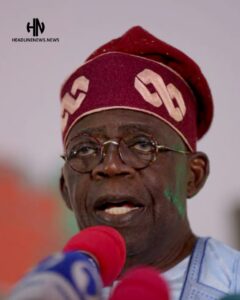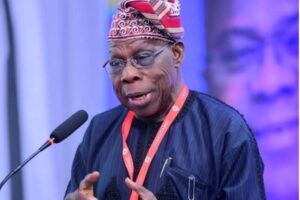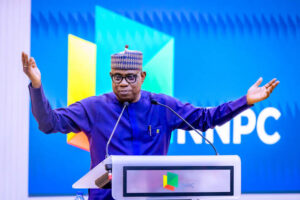By Dr. G. Fraser. MFR.
The National Patriots.
Headlinenews.news Commentaries.
Excerpt:
“If Shell and Dangote couldn’t fix the refineries, then clearly, the problem runs deeper than management. It’s systemic, technological, and political.”
Quote – Dr. G. Fraser, MFR, Petroleum Consultant, Fraser Consultants:
“We’ve been plugging holes in a sinking ship. A refinery should be a high-efficiency industrial plant, not a political job center.”
Comment:
No public refinery anywhere thrives on sentiment. Industrial logic must replace bureaucratic politics if there’s any hope of recovery.

President Tinubu: ‘This Refinery Shame Must End Under My Watch’
Excerpt:
“The Nigerian government cannot continue to import fuel while sitting on unused refining capacity. President Tinubu now promises full intervention.”
Quote – President Bola Ahmed Tinubu:
“We cannot continue to pour billions into a system that bleeds. Nigeria must have working refineries — or build new ones that work.”
Comment:
This public commitment is bold — but with years of broken promises behind us, only verifiable actions and timelines will move the needle.
Global Lessons Nigeria Refuses to Learn on Refinery Reform
Excerpt:
“India turned its refineries around with hybrid models. Brazil digitized Petrobras to stop corruption. Nigeria just kept recycling failure.”
Quote – Dr. Roberto Castillo, Energy Policy Advisor, Mexico Energy Secretariat:
“There’s no shame in copying success. The shame is in stubbornly repeating your own mistakes.”
Comment:
Benchmarking against better-performing peers should be mandatory, not optional. Nigeria’s refusal to adopt proven global frameworks is self-inflicted damage.
African Peer Comparison: Ghana’s Sankofa and Angola’s Sonangol Move Ahead
Excerpt:
“While Nigeria debates reform, Ghana has made its Sankofa Gas Project a regional model, and Angola’s Sonangol has restructured toward profitability.”
Quote – Wale Tinubu, CEO, Oando Group:
“Angola’s success lies in clear targets, lean operations, and getting politicians out of the boardroom. Nigeria must take notes.”
Comment:
The continent is changing. Nigeria’s status as a regional energy giant is slipping. Reform is not just needed — it’s overdue for survival.
Old Steel, New Problems: Are Nigeria’s Refineries Worth Saving?
Excerpt:
“Some of these refineries — built in the 1970s — may not be worth saving. A full demolition or modular rebuild may be cheaper.”
Quote – Dr. Irebami Ifadele, Royal Minerals Development Company:
“It’s emotional to keep the old refineries alive. But it’s economically suicidal.”
Comment:
History doesn’t owe us working refineries. The age and condition of these assets must be judged by science, not nostalgia.

Gas: The Billion-Dollar Missed Opportunity in Nigeria’s Energy Mix
Excerpt:
“Gas, a cleaner and increasingly demanded global fuel, remains underdeveloped in Nigeria despite massive reserves.”
Quote – Kenneth Yellowe, Global Gas & Refining Company:
“While we chase after oil, gas — our most strategic transition fuel — is wasting. The global window for monetization is closing fast.”
Comment:
Gas isn’t just a Plan B — it’s the most commercially viable lifeline Nigeria has in the next two decades. Delay is self-sabotage.
Digitalization: The Silver Bullet Against Refinery Corruption?
Excerpt:
“Digital refinery systems with real-time crude and product monitoring are now the global standard. Nigeria still operates like it’s 1982.”
Quote – Michael Fraser, Director, International Gas & Energy Services.
“Corruption hides in opacity. Digital systems leave no room to manipulate output, diversion, or maintenance claims.”
Comment:
A refinery that isn’t fully digital today is either leaking money or hiding it. Full digitalization must be a non-negotiable requirement in any future deal.

Leasing Over Selling: A Strategic Path Forward for FG Refineries
Excerpt:
“Nigeria must lease, not sell, its refineries — with performance-linked contracts and clawback clauses for non-performance.”
Quote – Dr. Amani Abou-Zeid, African Union Commissioner for Infrastructure and Energy:
“Public-private models work when there’s alignment on service delivery, not just profit. Lease structures give governments leverage while demanding performance.”
Comment:
This isn’t about ideology. Leasing lets the government retain control without carrying the operational burden — the right balance for national assets.

Obasanjo: ‘I Tried. Even Dangote Couldn’t Fix It. Maybe It’s Time to Scrap It.’
Excerpt:
“The former president revealed Dangote paid $750 million to rescue the refineries, but still failed due to entrenched inefficiency and decay.”
Quote – Olusegun Obasanjo, Former President of Nigeria:
“If Shell with all its global expertise refused, and Dangote couldn’t crack it, then we must admit — the system is the problem.”
Comment:
Obasanjo’s admission isn’t just historical — it’s a warning. Any future intervention must first tear out the rot before pouring in money.
Headlinenews.news Special Publication ©️

“Obasanjo Speaks Out: Nigeria’s Refinery Rot and the Urgent Call for a Presidential Overhaul”
By Dr. G. Fraser. MFR. The National Patriots.
HeadlineNews.News Staff Writer
In a brutally candid interview with Seun Okinbaloye of Channels Television, former President Olusegun Obasanjo pulled no punches in his scathing assessment of Nigeria’s federal refineries. Speaking from a place of experience and frustration, Obasanjo described the refineries as a “black hole of corruption and dysfunction,” recounting his futile efforts to revive the facilities during his presidency.
“I did everything I could. I offered Shell the refineries — they refused. I turned to Dangote — he paid upfront. It still failed. What else could I have done?” Obasanjo stated bluntly.
Shell’s Refusal: A Stark Wake-up Call
Shell Petroleum Development Company, responsible for roughly 65% of Nigeria’s crude production, was reportedly approached by Obasanjo’s administration to take over the operations of the country’s government-owned refineries. They declined, citing four key reasons, chief among them:
Rampant Corruption in the management of the refineries by the Nigerian National Petroleum Corporation (now NNPCL).
Strategic Focus — Shell’s global policy confines its operations strictly to upstream oil production, avoiding downstream refining assets.
Obsolete Infrastructure — The outdated systems and equipment in the refineries were deemed nonviable.
Unstable Regulatory Framework — Constant policy reversals and a lack of investor guarantees.

Dangote’s $750M Gamble — And Loss
Obasanjo, unwilling to surrender, turned to Africa’s richest man, Alhaji Aliko Dangote. In a bold move, Dangote paid $750 million upfront to take over the refineries. A vibrant operational team was put in place. But even with private sector efficiency and capital injection, the intervention collapsed under the weight of institutional decay. The administration of President Umaru Musa Yar’Adua refunded the payment, effectively admitting defeat.
This incident paints a disturbing picture — if Shell and Dangote couldn’t crack the refinery puzzle, then clearly, the problem runs deeper than management. It’s systemic, technological, and political.
The Bigger Picture: A Global Lens
Nigeria is not alone in grappling with inefficient state-owned refineries. Consider the following examples:
India once had underperforming refineries but adopted a hybrid model — keeping some refineries under state control while inviting private players like Reliance Industries, whose Jamnagar Refinery is now the largest in the world and highly efficient.
Brazil’s Petrobras faced similar corruption and inefficiency issues but began partial privatization and digital transformation of assets to restore operational integrity.
Mexico’s PEMEX struggled for decades, and only in recent years began overhauling its refineries with newer tech and a reduced state role in operations.

Analysis: Why Nigeria’s Case Is Unique — and Fixable
Nigeria’s overdependence on crude oil (over 80% of budget revenues) makes the refinery issue a matter of national security. Yet, the country still imports over 90% of refined petroleum products. This paradox continues to drain foreign reserves and inflate domestic fuel prices, despite being the 6th largest oil producer in the world.
Gas, meanwhile — a cleaner and increasingly demanded resource globally — remains grossly underdeveloped. A serious strategic failure.
The real problem is the lack of a business model for the refineries. Instead of operating like commercial entities, they’ve been politicized and turned into cash drains.
“We must stop seeing refineries as political ornaments and start treating them like the multi-billion-dollar industrial assets they are,” says petroleum economist Dr. Jumoke Alade.
Real Solutions: No More Patchwork
Here’s what Nigeria must do — urgently and surgically:
Lease, Don’t Sell — With Performance Clauses
Lease the refineries to credible international firms with the technology and financial clout to rebuild and operate them under strict performance-based contracts. India’s model proves this works.
Modernization or Demolition
Some of these refineries — built in the 1960s and ‘70s — may not be worth saving. The systems are outdated, and in many cases, unrepairable. A part-demolition with modern modular refinery replacement is more viable.
Digital Overhaul to Fight Corruption
Implement a fully digital refinery management system with real-time tracking of crude throughput, refined product output, and revenue streams. This is what saved Petrobras from total collapse.
Gasification Strategy
Aggressively develop Nigeria’s vast natural gas reserves. Invest in gas processing plants, pipelines, and export terminals to take advantage of global demand.
Presidential Task Force on Refineries
A special task force with a 12-month mandate and direct presidential backing is necessary. It should include experts from outside Nigeria, preferably from countries that have solved similar problems.
Final Word: Time for Brutal Honesty
Obasanjo’s testimony is not just a memoir — it’s a damning indictment of Nigeria’s policy paralysis.
“If I couldn’t fix it, and they couldn’t fix it after me, then maybe we need to tear it down and start afresh,” he concluded.
The Nigerian people deserve functioning refineries. Not white elephants. Not political excuses. Not billion-dollar cash sinks. It is time for President Bola Tinubu’s administration to act — with urgency, with clarity, and with courage.
Because the truth is blunt: if the government can’t run refineries, it should find those who can — or get out of the way.
For HeadlineNews.News — We report the truth, as it is.

Obasanjo: “Shell Rejected Our Refineries — Even Dangote Couldn’t Fix Them”
In a no-holds-barred interview with Channels TV, Former President Olusegun Obasanjo revealed the behind-the-scenes failures of Nigeria’s federal refineries, calling them “unfixable under the current system.”
He disclosed that Shell Petroleum declined to take over the refineries despite a flexible offer — citing corruption, outdated technology, and strategic misalignment. Dangote later stepped in with a $750 million upfront payment, but the effort still failed and the funds were refunded under President Yar’Adua’s administration.
“If Shell said no, and Dangote couldn’t succeed, then we must admit — the system is the problem,” Obasanjo said.
The interview reignites urgent national debate about what to do with the moribund state-owned refineries, many of which have not produced a drop of fuel in years.
Experts are now calling for digitalization, modular upgrades, or outright leasing to competent operators under performance-based contracts.
With over 80% of government revenue dependent on oil and gas, stakeholders warn: this is no longer just a technical issue — it’s an economic emergency.
Watch the full interview above.
Full report on the root cause of the collapse of Nigerian Refineries and policy failure is available on www.headlinenews.news.
For more Latest Updates Visit:
facebook: https://www.facebook.com/profile.php?id=61578250997243
Twitter: https://x.com/headlinenews_n
Website: https://headlinenews.news/



